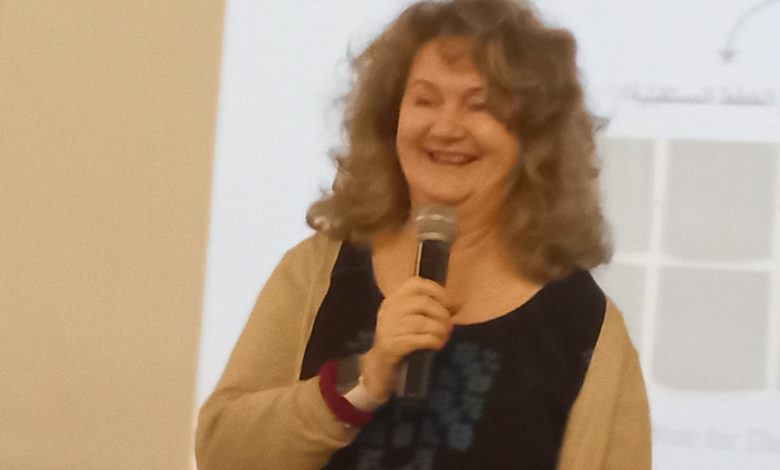Representative of the Asia Pacific Broadcasting Union explains the media constraints

Samah Saeed wrote:
Natalia Ilieva, representative of the Asia-Pacific Broadcasting Union, expressed her pleasure to participate in the media workshop on Disaster Risk Reduction, organized by the United Nations Regional Office for Arab states for Disaster Risk Reduction, in partnership with the Asia-Pacific Broadcasting Union and Arab countries, saying : we all suffer from the lack of response from decision-makers, especially during disasters and crises, because all they are concerned about is saving human lives .
She gave an example of both Japan and China during crises and disasters, where they provided all means of warning to avoid material and human losses and to give enough time for people to prepare managing their risks, noting the exclusion of receiving disaster warning messages through social media without verifying the source of the information, stressing that it must be issued by the concerned governments, and must be published long enough in advance .
She added that the language stands in the way of communication between media professionals in general and between them and the future in particular because of the multilingualism and dialects, saying : for example, in the Philippines there was a typhoon that claimed the lives of 9,000 people, where the fishermen’s huts were flooded by the sea, and despite the availability of information every 5 minutes from the Philippine Meteorological Authority and sending warning messages through the phones of citizens, the majority were on the beaches listening to the water and did not care to look at their phones and did not understand the meaning of the word tsunami as a result of their weak language .
About the upcoming cop27 climate conference in Sharm el-Sheikh, she stressed that she hopes to achieve its goals on the ground, pointing out that the role of the media in cop conferences is to cover meetings and discussions from the heart of the event and not to cover the news of delegations, so that it provides people with the full picture so that people can pressure their governments to take serious actions concerning climate issues.
